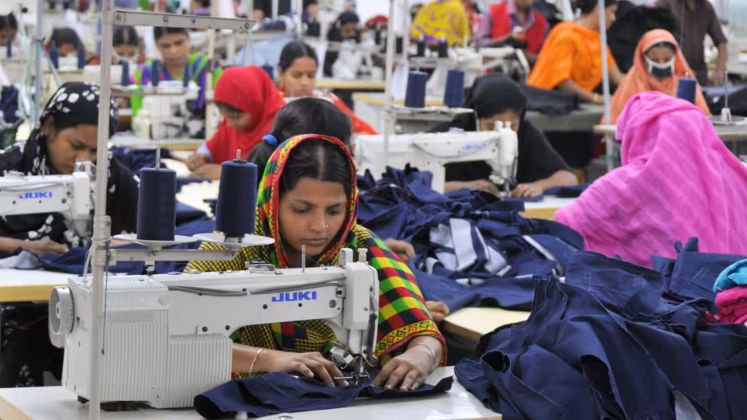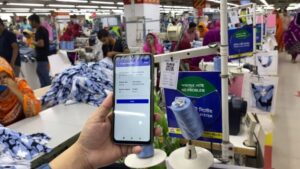
Amid impending US tariffs that endanger Bangladesh’s standing as a major global supplier, business leaders and industry experts have urged immediate diplomatic measures to protect the country’s important garment exports.
Impact of US Tariffs on Bangladesh’s Garment Industry: Challenges and Opportunities, a roundtable, brought industry participants’ attention to the impending expiration of a three-month tariff reprieve issued by the US government. They underlined the importance of taking smart measures to avoid suffering large losses because time was of the essence.
With about 9.3% of the $90 billion US apparel market, Bangladesh is currently the third-largest supplier of clothing to the US. Exports to the US totalled $7.34 billion in 2024, an increase of over 36% over the year before. Nevertheless, Bangladesh’s market share and international reputation are seriously threatened by the US’s imposition of a 37% reciprocal tariff on top of the country’s current 16% levies.
The chairman of Youngone Corporation, Kihak Sung, issued a warning, saying that quick action is necessary since Vietnam is quickly overtaking Bangladesh in terms of US market share. Diversifying export markets and minimising over-reliance on the US are crucial, he emphasised. In order to address labour rights issues and expedite on-time delivery and high-quality production, Sung also advised Bangladesh to collaborate closely with US trade officials and international organisations such as the ILO and World Bank.
Sung emphasised that ad hoc talks are insufficient and proposed the creation of a permanent trade negotiation team with headquarters in the US. In order to balance trade relations and reduce risks, he also suggested raising US imports by at least $1 billion per year for the following three years.
Concern over the ongoing negotiations was expressed by industry insiders; Azad of Ha-Meem Group called the situation “very critical.” Azad demanded that a high-level committee and lobbyists be appointed to represent Bangladesh’s interests and denounced the absence of adequate interaction with exporters.
Others, like Anwar-Ul-Alam Chowdhury of Evince Group, lamented the government’s half-hearted approach and highlighted the need for strategic import diversification, including US goods such as cotton and LNG, although he acknowledged that ramping up imports would take time.
Industry officials cautioned that complete trade negotiations might not be possible in the short term given the impending tariff announcement. Rather than making firm promises that might subsequently work against you, they advised active participation and indicating a willingness to negotiate.
The significance of a national discourse forum was also emphasised in the conversation. A “National Social Dialogue Forum” was suggested by Syed Sultan Uddin Ahmed as a way to promote cooperation between the public and business sectors, labour unions, and foreign partners.
Industry leaders also emphasised the importance of clearly communicating Bangladesh’s position to the US by pointing to the country’s duty-free imports of American goods, such as LNG and cotton. In order to diversify risk, they also recommended that Bangladesh enter the South American and Asian markets.
Drawing lessons from China’s experience with US tariffs, some called for dedicated market trend monitoring desks and stronger diplomatic representation to ensure economic interests are prioritised.






